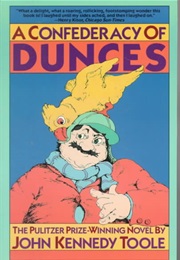
Twenty-four novellas are currently available. Melville House celebrates this renegade art form and its practitioners with titles that are, in many instances, presented in book form for the first time. Purchasers of the digital version receive the appropriate Illuminations automatically as part of the ebook edition.
Bartleby the scrivener code#
Purchasers of the print version can obtain the Illuminations for a given title simply by scanning the QR code found in the back of each book, or by following the url also given in the back of the print book, then downloading the Illumination in whatever format works best for you.
Bartleby the scrivener free#
The Melville House Illuminations are free with the purchase of any title in the HybridBook series, no matter the format. Melville House HybridBooks combine print and digital media into an enhanced reading experience by including with each title additional curated material called Illuminations - maps, photographs, illustrations, and further writing about the author and the book. The work is presented here exactly as it was originally published in Putnam’s magazine-to, sadly, critical disdain. The tale is one of the final works of fiction published by Melville before, slipping into despair over the continuing critical dismissal of his work after Moby-Dick, he abandoned publishing fiction. Set in the mid-19th century on New York City’s Wall Street, it was also, perhaps, Herman Melville’s most prescient story: what if a young man caught up in the rat race of commerce finally just said, “I would prefer not to”? The main themes of the short story Bartleby, the Scrivener: A Story of Wall Street by Herman Melville are isolation and the failure of maintaining an.

“Prefer not to,” echoed I, rising in high excitement, and crossing the room with a stride. But in quite as clear a one came the previous reply, “I would prefer not to.” I repeated my request in the clearest tone I could assume.



Immediately it occurred to me that my ears had deceived me, or Bartleby had entirely misunderstood my meaning. I sat awhile in perfect silence, rallying my stunned faculties. Herman Melville's Bartleby, the Scrivener: A Story of all-street is a story reminiscent of the emergence of nineteenth century white-collar working class in most cities in the United States and specifically New York. Imagine my surprise, nay, my consternation, when without moving from his privacy, Bartleby in a singularly mild, firm voice, replied, “I would prefer not to.” In Herman Melvilles Bartleby, the Scrivener, Melville argues that work in a capitalist society dehumanizes its employees because the upper class regards them. Bartleby and Akaky: A Struggle against Social Tide. In this very attitude did I sit when I called to him, rapidly stating what it was I wanted him to do-namely, to examine a small paper with me. In my haste and natural expectancy of instant compliance, I sat with my head bent over the original on my desk, and my right hand sideways, and somewhat nervously extended with the copy, so that immediately upon emerging from his retreat, Bartleby might snatch it and proceed to business without the least delay. It was on the third day, I think, of his being with me, and before any necessity had arisen for having his own writing examined, that, being much hurried to complete a small affair I had in hand, I abruptly called to Bartleby. It is only later on that his work has been rediscovered and celebrated.īartleby the Scrivener While his early novels enjoyed some success, his later efforts, including the classic Moby Dick and the novel Pierre were poorly received. Herman Melville (1819–1891) was an American writer of essays, short stories and novels.


 0 kommentar(er)
0 kommentar(er)
